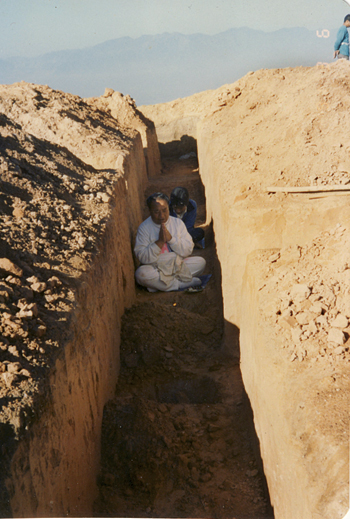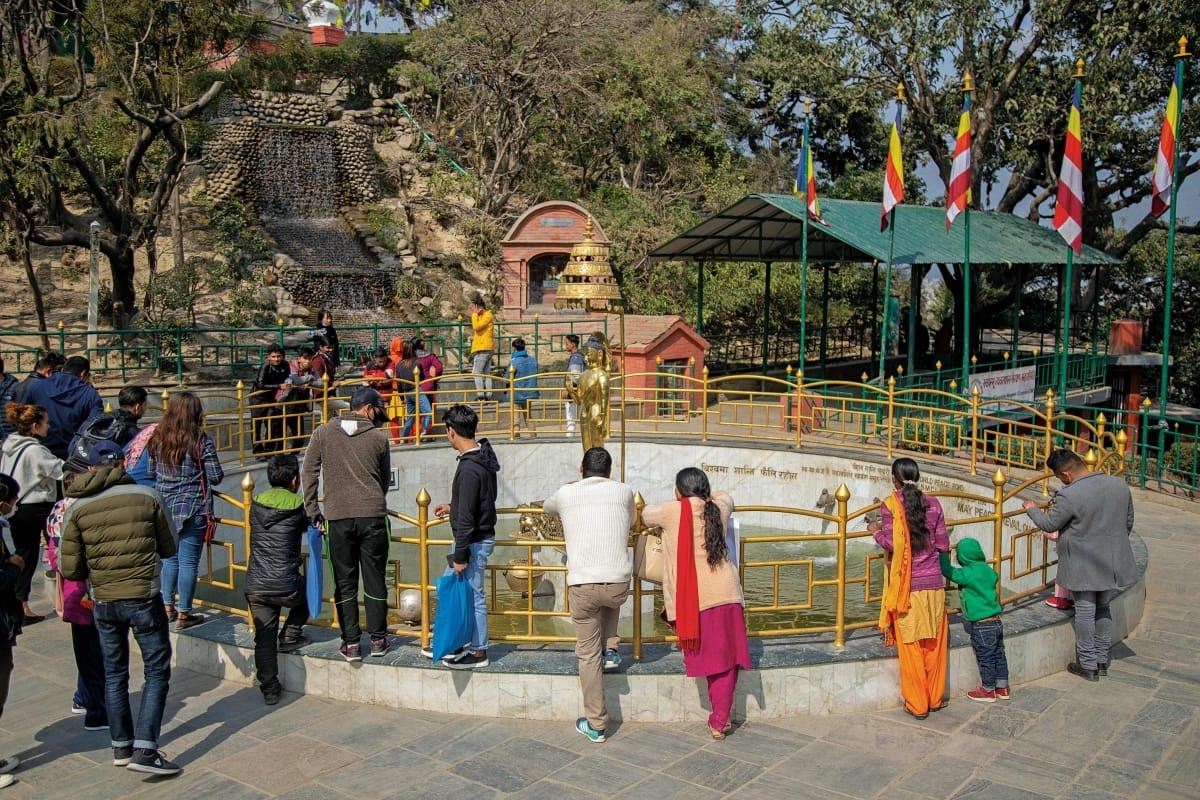45 days after my father departed, I was standing on the rubble of the dismantled Hotel Ambassador in Lazimpat, wearing my Barkhi (mourning) attire, when I noticed an elderly gentleman, maybe in his early 70s, looking at me. “Aren’t you Yogendra Sakya?” he asked. “I live a few blocks away from here. I knew Basanta dai and was sad to know of his passing. But why have you pulled down a solid building? What are you going to build here?”
“A new Hotel Ambassador,” I replied.
 He looked at me in disbelief, unable to comprehend why I had pulled down a perfectly good building only to have it rebuilt again. Nonetheless, he carried on.
He looked at me in disbelief, unable to comprehend why I had pulled down a perfectly good building only to have it rebuilt again. Nonetheless, he carried on.
“I didn’t just stop to inquire what you’ll be building here. When I saw you standing in your Barkhi clothes, I was reminded of an incident that took place about 52 years ago. At that time it was your father who was standing here and he was also mourning his father’s death.”
It was a strange and surreal coincidence. The man then went on to tell me that when he came across my father, he was supervising the digging of the foundation of a building that was smack in the middle of a field. “Lazimpat was all farmland then,” he continued. “I was curious to know whether he would be leaving his bubbling Ason Tole for this rural place.” When my father told him that he was building a bungalow to rent to the British Embassy, he thought my father was insane. Why would anyone rent a building in the middle of nowhere? “But I was also very impressed by Basanta dai’s simplicity and honesty. Despite being busy, he was taking the time to talk to a 16 year old stranger. I felt sad for him when he told me the income from his shop in Ason would not be enough to sustain his large 13 member family. I hoped that his crazy ideas would bear fruit.”
My father’s plans did just that. Not only did the British Embassy rent the bungalow, the extra income helped him support his 13 member family as well as start a 13 room guest house in Thamel.
The man’s story reinforced my father’s mantra: “Be simple, sincere and hardworking; success will follow.” For us, success depends on what others say, but for him, success was to be felt, not heard. Dharma and Karma were the two pillars of his life. He was a low-key person who did not believe in publicizing himself. “If your product is good, you don’t need to blow your trumpet,” he used to say. He did not believe in insurance either; for him God was the only insurer of our fates. Though he might not sound like a man fit for modern business, my father was largely responsible for turning Thamel into what it is today, thanks to him converting a dilapidated old Rana residence into the landmark Kathmandu Guest House.
Basanta Sakya, my father, left me on Sunday, 16 March 2013, when I was 58 years of age. His father left him when he was just 34. Age wise, and financially, I was in a much better position than he was. Yet I felt the same anxiety, nervousness and vacuum that one feels when losing a family member, especially one who kept worrying about me till the end.
I heard many stories from my father, and I remember him telling me about that particular incident too. But it was only after he was gone, and having found myself in a similar position that he was in then, that the thought struck me, and it came via the incident with the old man, standing in the same spot my father had five decades ago. My father knew that my St. Xavier’s education had made me stubborn, almost as stubborn as he was. We both knew that we could not influence one another. May be that is why, after his departure, he orchestrated strange incidents from his heavenly abode to convince me into believing in Dharma and Karma.
I told myself, “Life is a full circle. You are born a son to a father, you then become a father too, you have to father your aging father and you start hoping that one day one of your children will father you when you need to be fathered!” My father may not h ave been successful in cultivating Dharma and Karma in my life when he was alive, but I can certainly feel it very strongly after his departure.
Yogendra Sakya is the former president of Hotel Association of Nepal . He is also the Chairman of Ace Hotels & Resorts.








